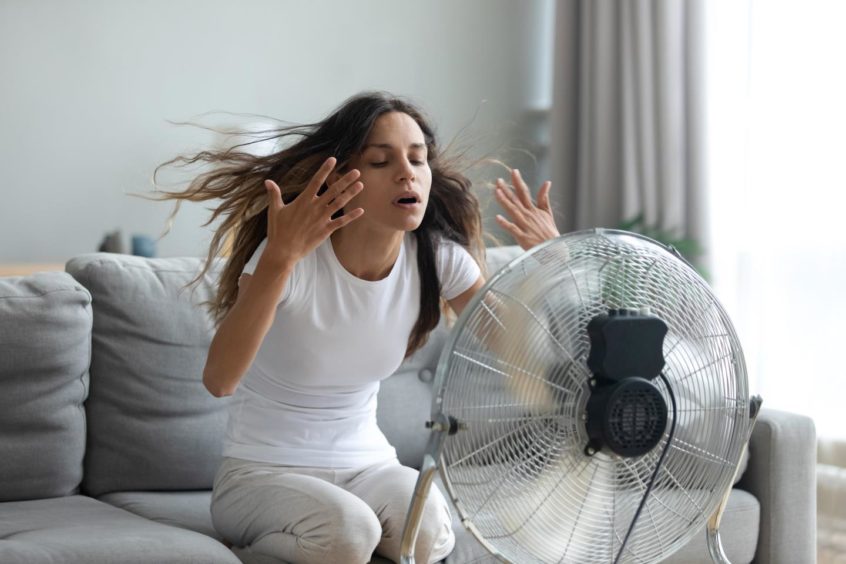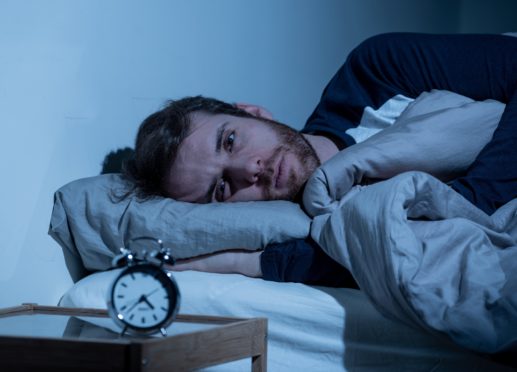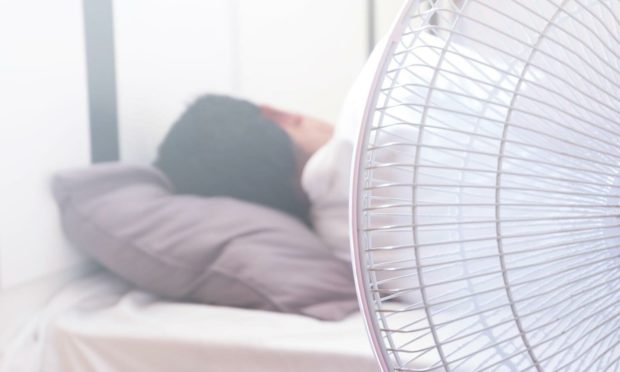We’ve been enjoying the warmer weather over the last few weeks, but there’s no doubt it has made bedtime more difficult.
Our expert, Dr Colin Espie, a Scottish professor of behavioural sleep medicine at Oxford University, shares his top tips for a good night’s sleep no matter the weather.
And he lets you in on how you can get the best quality sleep without overheating – as well as revealing whether Scots are more likely to lose sleep in the heat.
Why is it more difficult to rest well during a heatwave?
Dr Espie says: “Our body temperature naturally fluctuates across 24 hours.
“During the night, your core body temperature is at its lowest point, then it rises again towards morning.
“There’s a natural cooling that takes place as part of a biological rhythm.
“But if it’s warmer than normal in our environment, it’s more difficult to shed that temperature.
“All we need to do is nudge this in the right direction and not overthink it.”

So how can you stay cool when the temperatures soar during the summer months?
Top tips for cooling down
Dr Espie, chief medical officer at the company that created digital sleep improvement program, Sleepio, advises:
- Make sure you’re well hydrated with plenty of water when you go to bed.
- Your room should also be well-ventilated. A lot of people in Scotland don’t open their windows.
- The air temperature outside is cooler so open windows before you go to bed so the room is already cooler when you do go.
- Reduce bedclothes.

Though hot weather can make sleep problems more pronounced, some struggle with getting to sleep and staying asleep throughout the year.
Is not sleeping just in my mind?
Dr Espie explains: “For many, the trouble they have with sleep is more of a mental issue triggered by something like being too hot, but it quickly becomes a cognitive problem.
“Sleep touches pretty much everything – when people can’t sleep, they can’t function properly during the day.
“We know if people have developed a chronic problem with sleeping, they’re twice as likely to develop depression than someone who is sleeping well.
“That connects with fatigue and sluggishness. You may find it more difficult to concentrate or feel your memories are not functioning that well.”
Sunny Scotland
Scotland is well-known for its lack of warm weather year-round, so are Scots more likely to suffer during an elusive heatwave?
Dr Elspie explains: “If you move to a new house beside a railway station, the sound of trains passing by will affect you more because you’re not used to them.
“If you’re more familiar with something, you’re more used to living with it and may cope better.
“If you can’t sleep, get up for a while, do something else for 10-15 minutes and go back to bed when you feel sleepy again.
“I think most Scottish people won’t mind trading off a few nights of warm, broken sleep for the chance of better weather through the day.”
